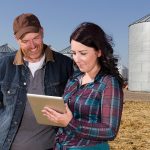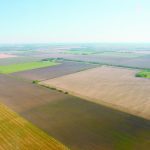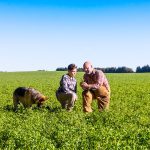The federal carbon tax was introduced in 2019 and has increased ever since. Originally, it was to be returned to the people in the province or territory where it was collected. This article isn’t relevant for British Columbia and Quebec because neither has a federal carbon tax. Individuals receive the Canada Carbon Rebate quarterly. Payments […] Read more
Stories by Levi Derksen

Steps can be taken to make succession plan sustainable
Where will your farm be in 20 years? Who will be farming? Who will own the land? Most importantly, what are you doing today to make sure that this plan is sustainable? In our Dec. 3 article, “Estate plan tips to recognize farming, non-farming kids,” we covered land planning from the parent’s perspective. In this […] Read more

Estate plan tips to recognize farming, non-farming kids
Rural communities all have stories about farmland deals gone bad, land sold through divorces, and non-farming siblings inheriting land and selling it out from under the farming sibling. That’s likely why many parents want to give most, if not all, the farmland to the farming child(ren), so the farm remains in the family. This typical […] Read more

Avoid surprises with tax estimates before end of the year
Do you know how much cash basis taxable income you have right now? Cash basis taxation for farmers is unique and gives a lot of flexibility for taxable income planning. However, this can create massive tax liabilities if you have too much cash basis taxable income. Many producers wait until winter to get their books […] Read more

AgriStability deadline changes to make it more responsive
Historically, the AgriStability filing deadline is Sept. 30. However, for the 2024 program year, the deadline is changing to June 30, 2025, to submit the 2024 forms without penalties. If you don’t participate in AgriStability, the AgriInvest deadline is still Sept. 30, 2025, for the 2024 program year. However, for the 2025 program year, the […] Read more

When the time is right to incorporate the farm, do it right
As farming ventures grow, more of them operate as corporations. Typically, farms start with sole proprietors or as spousal partnerships. This works for a small farm, but as profitability grows, incorporation is the next logical step. Farms typically incorporate to take advantage of the low corporate tax rate on the first $500,000 of taxable income. […] Read more

Beware of non-farm assets in a farming corporation
With GIC interest rates between five and six percent, more farming corporations are locking away excess cash in GICs and other investments. Before you do this, beware of the punitive tax rate. Corporate passive investment and rental income are taxable at 50.67 percent (with 30.67 percent refundable if dividends are paid out to the shareholders). […] Read more

Pay taxes on time and avoid big non-deductible interest
Most people don’t want to pay the Canada Revenue Agency more than they absolutely have to. CRA interest is a hidden charge that is often forgotten, but completely avoidable. The interest rate has been climbing, along with all other interest rates. It is now nine percent, and worse yet, CRA interest charges are not deductible […] Read more

Equipment immediate expensing to end for corporations
Do you need a large tax deduction before year-end? You may be able to immediate expense (100 percent write-off in the year of purchase) up to $1.5 million of equipment purchases. For corporations, immediate expensing ends Dec. 31, 2023, and the equipment must be available for use by Dec. 31. The Canada Revenue Agency defines […] Read more

Young farmers encouraged to build experience and equity
What’s the best way to have your children start farming? How do you compensate them? Many operations pay wages to children or young people working on the farm. This works great when your children are younger. If they aren’t sure about farming in the future, paying wages as a farm employee is simple and transparent. […] Read more




